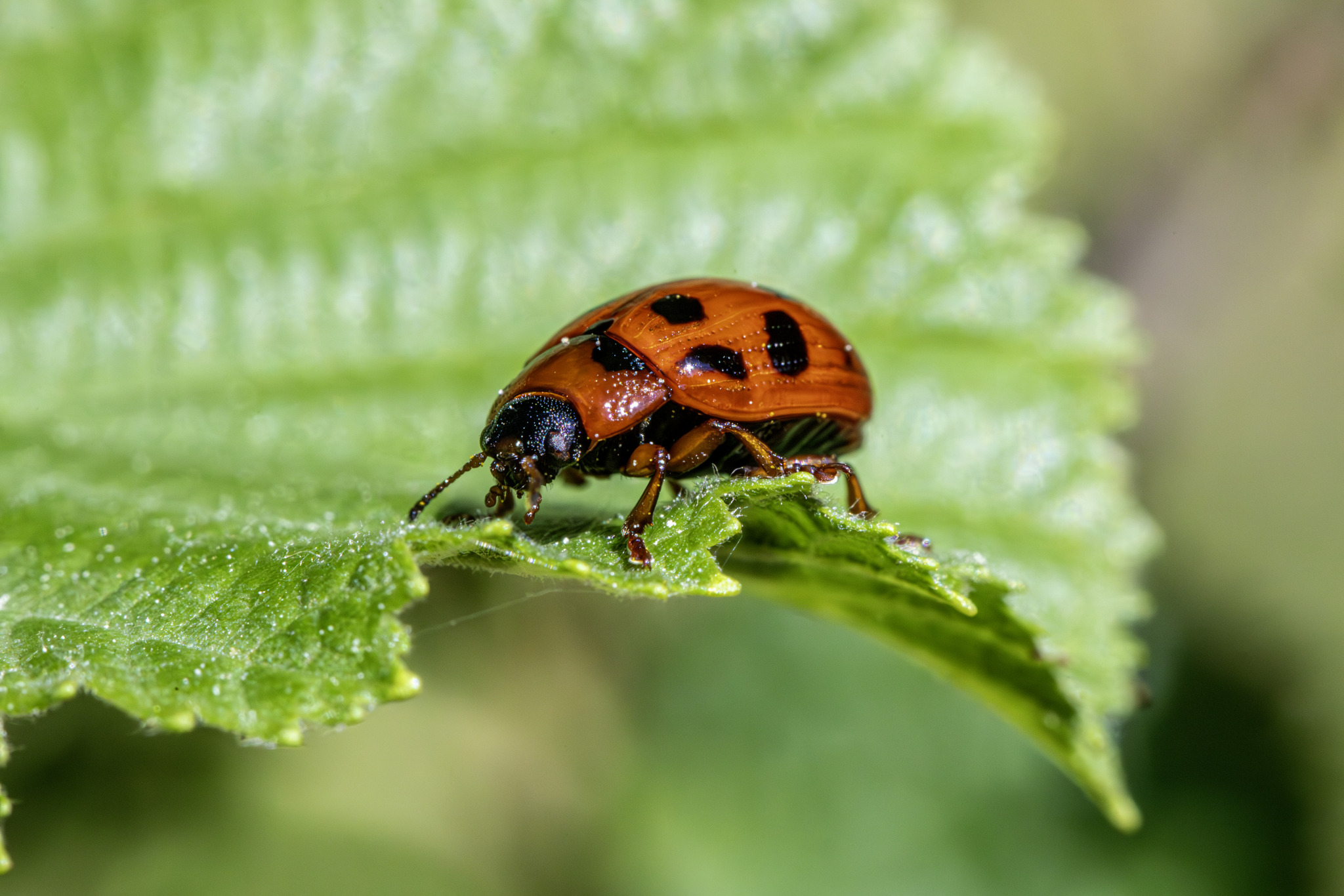The American Aspen Beetle (Gonioctena viminalis) is a species of leaf beetle in the family Chrysomelidae. Here are some key features and characteristics of this beetle:
Appearance
- Size: The American Aspen Beetle is relatively small, typically measuring around 5 to 7 millimeters in length.
- Color: It has a distinctive reddish-brown to yellowish-brown coloration. The elytra (wing covers) are often marked with dark spots or stripes, contributing to its identification.
Habitat
- Preferred Habitats: This beetle is commonly found in deciduous forests, particularly those with an abundance of aspen and willow trees, which are its primary food sources.
- Geographic Range: The American Aspen Beetle is native to North America, particularly widespread in regions where aspen trees are common, such as boreal and temperate forests.
Behavior
- Feeding: Both adults and larvae feed on the leaves of aspen (Populus spp.) and willow (Salix spp.) trees. They can cause significant defoliation when present in large numbers, which may affect the health of the host trees.
- Life Cycle: The lifecycle of Gonioctena viminalis includes egg, larval, pupal, and adult stages:
- Eggs: Laid on the underside of leaves in clusters.
- Larvae: After hatching, the larvae feed on the leaves, creating characteristic feeding patterns.
- Pupae: The larvae pupate in the soil or leaf litter.
- Adults: Emergent adults continue to feed on leaves and mate to start the next generation.
Conservation Status
- Impact on Trees: While the American Aspen Beetle can cause noticeable damage to trees through defoliation, it typically does not kill healthy trees. However, severe infestations can weaken trees and make them more susceptible to other stresses, such as disease and harsh weather.
- Conservation: The beetle is generally not considered a major pest, and its populations are typically kept in check by natural predators and environmental factors.
Interesting Facts
- Defensive Mechanisms: Some leaf beetles, including Gonioctena viminalis, have developed chemical defenses to deter predators, which can make them less palatable or even toxic.
- Role in Ecosystem: As with many leaf beetles, Gonioctena viminalis plays a role in the ecosystem by contributing to the recycling of nutrients through leaf litter decomposition and serving as prey for various predators.
In summary, the American Aspen Beetle (Gonioctena viminalis) is a small, leaf-eating beetle commonly associated with aspen and willow trees in North America. While it can cause significant defoliation, it is generally not a major threat to tree health. Its presence is a natural part of forest ecosystems, contributing to nutrient cycling and serving as a food source for other wildlife.
Visited 853 times, 1 visit(s) today
Views: 1077
Subscribe to the newsletter:
